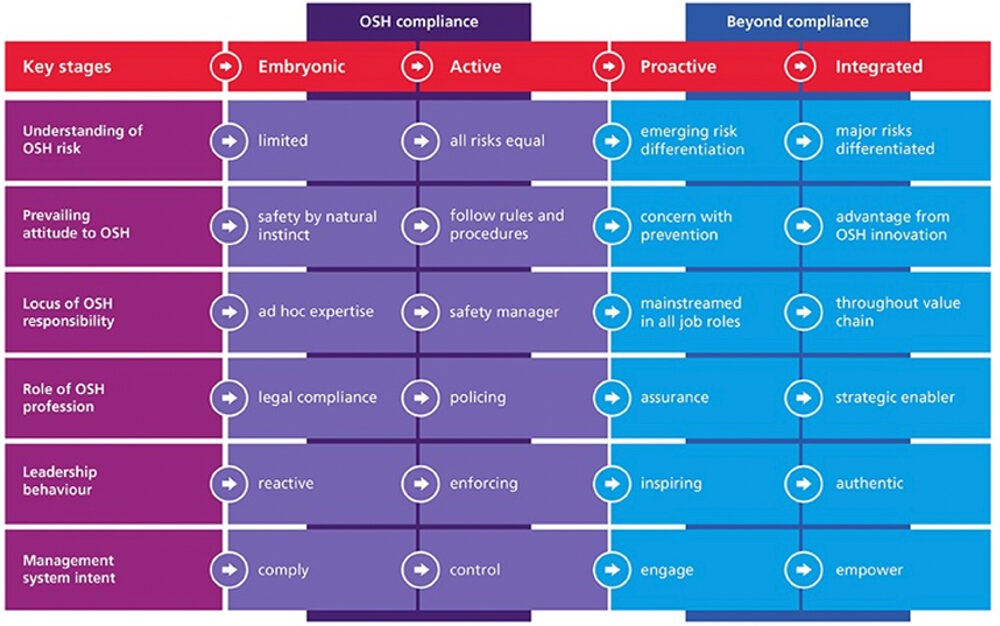The private sector may support the vision behind sustainable development goals (SDGs) but that doesn’t mean they’re delivering on them, says the IOSH Business Leaders Forum.
It was the topic of discussion where members reviewed the recent United Nations Global Compact (UNGC) SDG Stocktake report.
 The report showed that 85% of all SDGs are off track – with none of the goals on track to be achieved by 2030. It also outlined several challenges that private sector organisations face when it comes to supporting SDGs, including a perceived inability for businesses to exert influence among their supply chains, long payback periods for sustainability efforts, and changing priorities among CEOs.
The report showed that 85% of all SDGs are off track – with none of the goals on track to be achieved by 2030. It also outlined several challenges that private sector organisations face when it comes to supporting SDGs, including a perceived inability for businesses to exert influence among their supply chains, long payback periods for sustainability efforts, and changing priorities among CEOs.
That’s despite the Stocktake noting that “global issues ranging from climate, water and food crises to poverty, conflict and inequality are in need of solutions that the private sector can deliver, representing a huge and growing market for business innovation”.
And with the EU’s forthcoming Corporate Sustainability Due Diligence Directive requiring companies to identify and prevent both the actual and potential impacts of their activities on the environment and human rights abuses – not to mention investors increasingly demanding that businesses disclose risks and opportunities related to the climate, workforce planning and labour practices – there’s more pressure than ever on the private sector to play a vital role in SDG delivery.
Knowing how to put that into practice is another thing entirely, though. In fact, the UNGC’s report claimed as many as 84% of respondents felt that the measurement and calculation of impacts towards SDGs is also a major barrier; in other words, companies struggle to understand how to calculate their progress.
It’s apparent that businesses want clear measurement criteria and calculation methods to not only report progress properly, but to make informed decisions based on these insights.
At the Business Leaders Forum, all members agreed that the 17 SDGs were understood in principle, and that mapping them to elements of good OSH management provided focus and direction. IOSH’s recently published Delivering a Sustainable Future report identified how OSH can play a role in meeting 51 of the 169 targets that support the SDGs, with the ability to make a direct contribution to 31 of them.
However, not all members of the Forum engaged so specifically with the SDGs in their strategy. Comments included: “We’re looking at regulations, labour rights, International Labour Organization Fundamental Principles and Rights, not necessarily SDG alignment”; and, “We see the links between OSH practice and many SDGs, but how do we put this into practice and then measure our activities’ impact against them?”
The session explored the challenges created by the division of responsibilities in organisations, with sustainability often falling within the remit of another team and outside the scope of OSH functions. Indeed, not all members felt comfortable with the term ‘social sustainability’, with some focusing instead of the notion of business ‘purpose’ or ‘people strategy’.
But what is undoubtedly clear is that where SDGs provide a unifying vision of a sustainable future, challenges remain for businesses in co-ordinating efforts to meet them, measure them and report on them.
For some, external help in the form of solutions such as IOSH for Business may therefore be beneficial. With services and support aimed at driving social change while empowering your business to grow profitably and sustainably, it provides expert assistance in planning, delivering and measuring on activities linked to SDGs.
To learn more, visit www.iosh.com/business or email [email protected].
Angela Gray CMIOSH is Technical Lead at IOSH.


